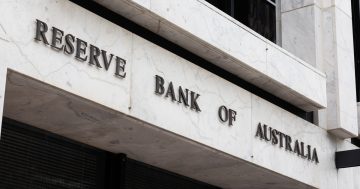Gerard Cockburn* says financially-distressed home buyers pressing pause on mortgages could be hit with higher interest fees from their banks if they seek further help.
 Experts have projected that house prices could see a dramatic fall due to the COVID-19 pandemic.
Experts have projected that house prices could see a dramatic fall due to the COVID-19 pandemic.
Financially distressed mortgage holders pressing pause on their loans could be hit with higher interest fees from their banks if they seek further help because of the coronavirus pandemic.
Home buyers unable to resume normal repayments beyond the loan deferral deadline at the end of September may be forced to opt into higher interest-accruing loan products to avoid the possibility of losing their property while money is tight.
Banks are offering mortgage holders still feeling the financial pain of COVID-19 the option of moving to interest-only payments.
Interest-only repayments are cheaper in comparison to loan payments still paying both principal and interest.
It is designed to be a temporary relief measure while customers are unable to meet loan obligations.
Commonwealth Bank, Westpac and NAB have all confirmed interest-only rates would be higher than what would be offered if a customer remained on principal plus interest repayments.
The move has sparked concern from RateCity research director Sally Tindall, who says banks should not hike interest rates for people who claim financial hardship because of the pandemic.
“Some of these people, through no fault of their own, have had their livelihood stripped from them,” she said.
“These customers should be getting a rate cut, not a rate hike. Asking people to pay more interest when they are in financial distress doesn’t seem fair or reasonable.”
Across the major banks, principle and interest variable rates sit at around 2.7 to 2.8 per cent, while interest-only repayments sit at rate around 3.3 per cent.
Ms Tindall said moving to an interest-only rate may be a good short-term measure for those doing it tough, but banks should be helping customers where possible to minimise their interest burden.
“The banks have been told by ASIC to be fair and flexible in their negotiations, and to help people stay in their home if it’s in their best interests,” she said.
“They need genuine help from the banks, not a bigger interest bill.”
According to RateCity research, a mortgage holder owing $400,000 who chose to move to interest-only after the six-month deferral period would pay an extra $13,729 over the life of a 25-year loan.
The Australian Banking Association has confirmed a further four-month deferral may be granted on request.
Based on the same loan, a customer owing $400,000 who took the additional four months would only have to pay an additional $10,418.
CBA says customers are informed about the increase in interest payable when they contact the bank to move their loan to interest-only.
Westpac says it will be looking at further relief on a case-by-case basis, but the actual rate will depend on the selected product, borrowing purpose and the original loan-to-value ratio.
NAB says its rates will be aligned to its interest-only products.
ANZ has been contacted for comment.
*Gerard Cockburn is a business reporter.
This article first appeared at news.com











